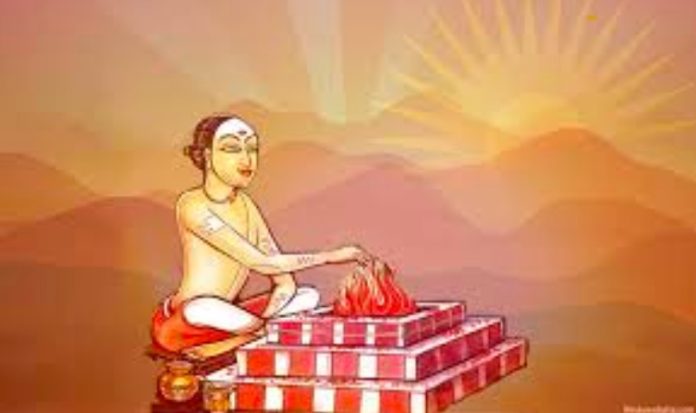Srimad Bhagavatam, Mahatmyam, Chapter 3 Sloka 42-43: These two slokas state that those who do not read Srimad Bhagavatam are wasting their lives.
Srimad Bhagavatam, Mahatmyam, Chapter 3 Sloka 44-45: It is only through the results of the good deeds done in previous births that one gets to read Srimad Bhagavatam (44). Hey Narada Muni, Srimad Bhagavatam can be read at any time.
Srimad Bhagavatam, Mahatmyam, Chapter 3 Sloka 46-47-48: Actually, one has to be a Brahmachari (celibate) to read Srimad Bhagavatam, but this is not possible in Kali Yuga. Hence, Sri Sukha has suggested a way out: Srimad Bhagavatam can be read in seven days, implying that in these seven days, one will have to practice celibacy and also have a purity of mind, thought and action. The ideal time to read Bhagavatam is Feb-March and Aug-Sept. These months are auspicious. One has to keep in mind that Feb-March is springtime and Aug-Sept post-monsoon. In these two seasons, the mind will be calm as the atmosphere will be fresh and pristine.
Srimad Bhagavatam, Mahatmyam, Chapter 3 Sloka 49-52: In Kaliyuga, it is difficult to control the mind for long. Moreover, people would be afflicted with diseases and ailments and their lifespan may get reduced, hence a Sapthaham (reading of Srimad Bhagavatam in 7 days) would be most suitable. (49)
In Kaliyuga, Saptaham is most ideal and superior tapas, yoga, samadhi, yagnas, rituals, going on pilgrimage etc.
Srimad Bhagavatam, Mahatmyam, Chapter 3 Sloka 53: It is indeed strange and heartening that the three yogas – Gnaya, Karma, Ashtanga – result in Moksha (liberation of one’s soul), but in Kaliyuga it is Sapthaham that leads one easily to Moksha. (54)
At the time when Sri Krishna was ready to ascend to Vaikunta, he himself gave a discourse to his favourite disciple Uddhava and this is contained in the eleventh volume of Srimad Bhagavatam. Though it is a dialogue between Sri Krishna and Uddhava, the latter subsequently explained the philosophy.
























































